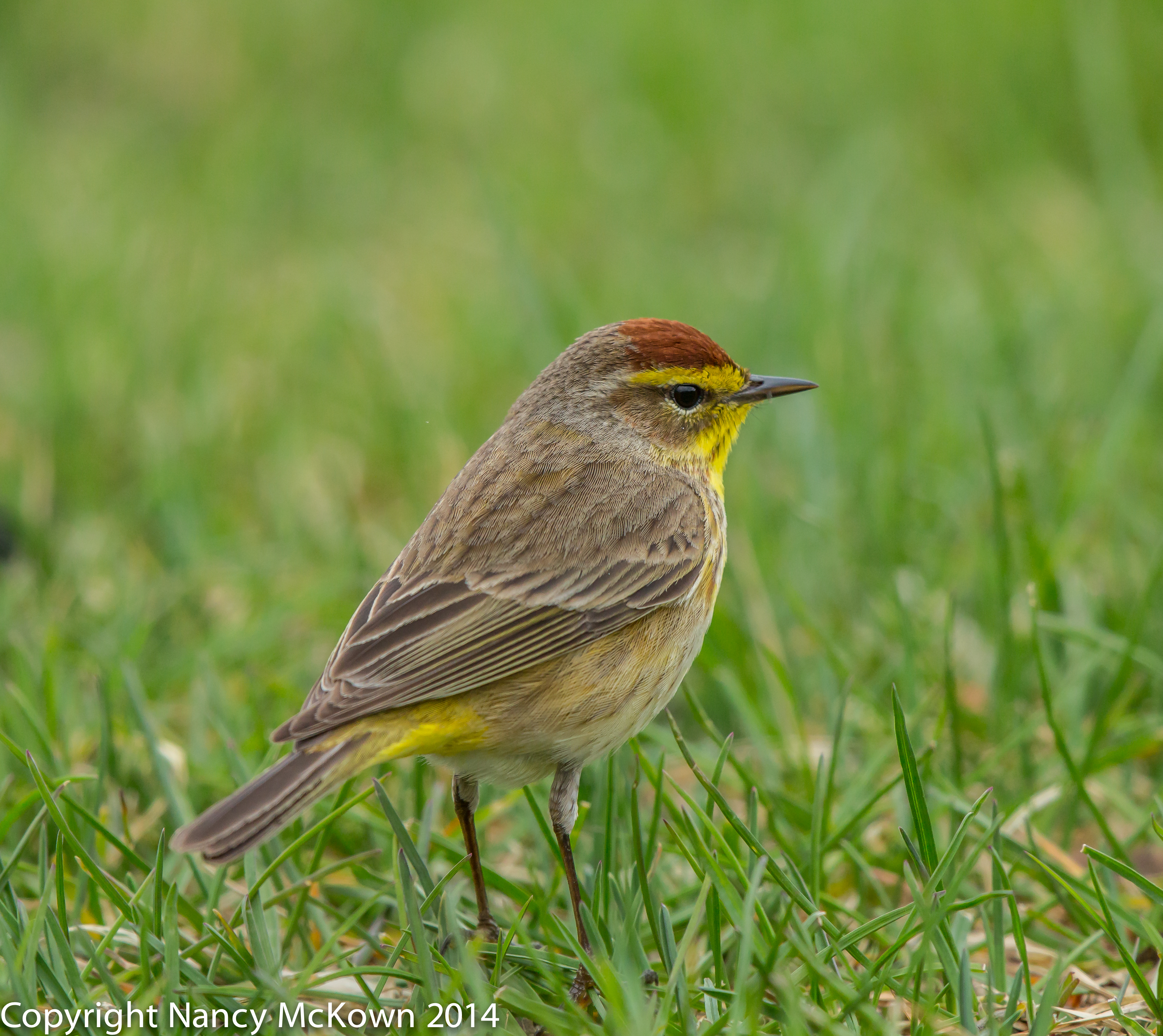Palm Warblers Passing Through Michigan
Just when I thought that most birds were done traveling through Michigan to their northern or western nesting grounds, I found and photographed another spring traveler. Western palm warblers migrate from their wintering grounds in the Caribbean and Southern United States to their breeding grounds in Canada.
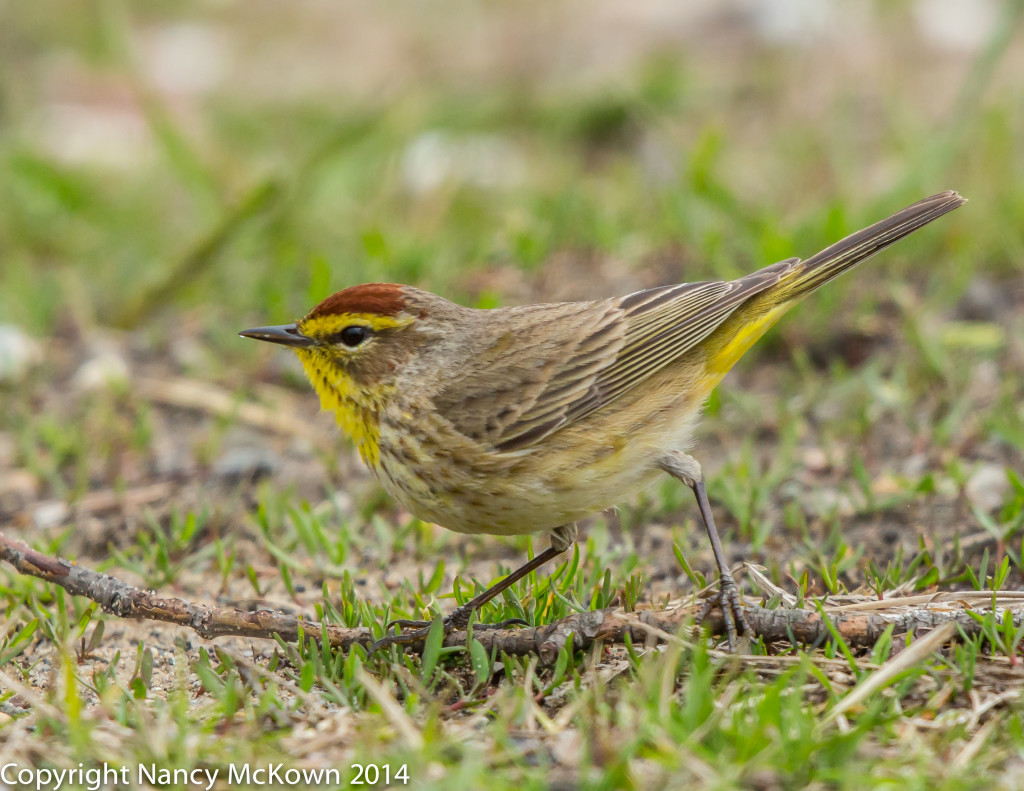
ISO 1250; f/9.0; 1/2000 Second
Photographing Birds Without Clutter
I came across these rusty capped, tail wagging song birds at a local park. They seemed unconcerned with the human activity around them as they bobbed their tail feathers (to show off their yellow feathers under tail) and foraged for food in a wide open, grassy picnic area. I was photographing the palm warblers from above, with the lens resting on the car door. The lens had no problem locking down focus as they hopped and ran in the grass. No branch clutter and hidden hidey-holes were around to spoil my fun. The sight line was free and clear in case the birds decided to fly off.
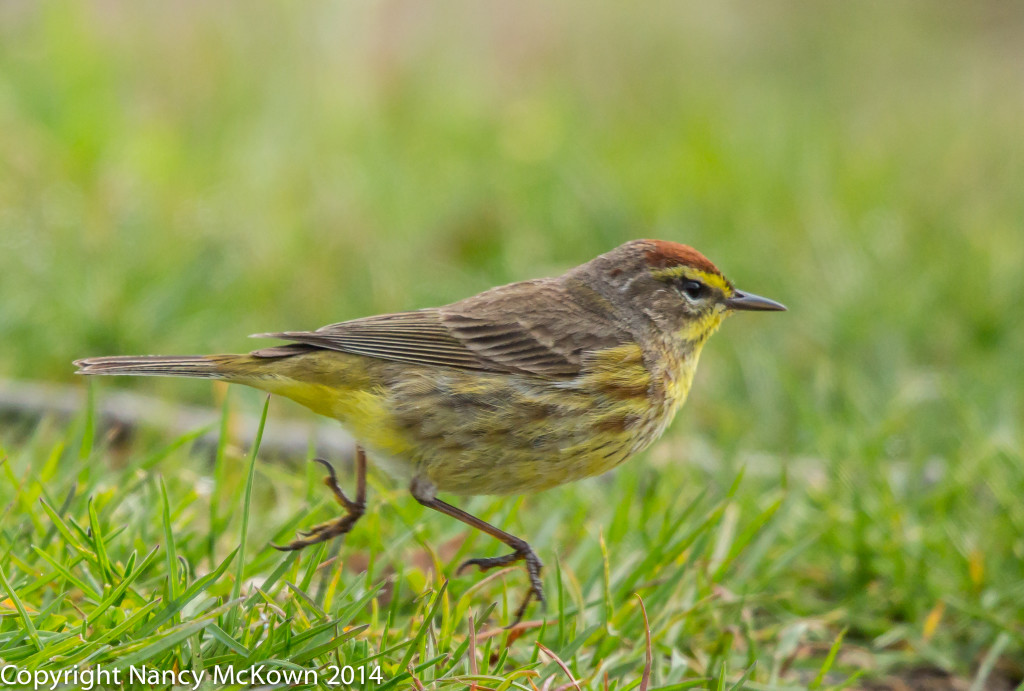
ISO 1600; f/9.0; 1/2500 second.
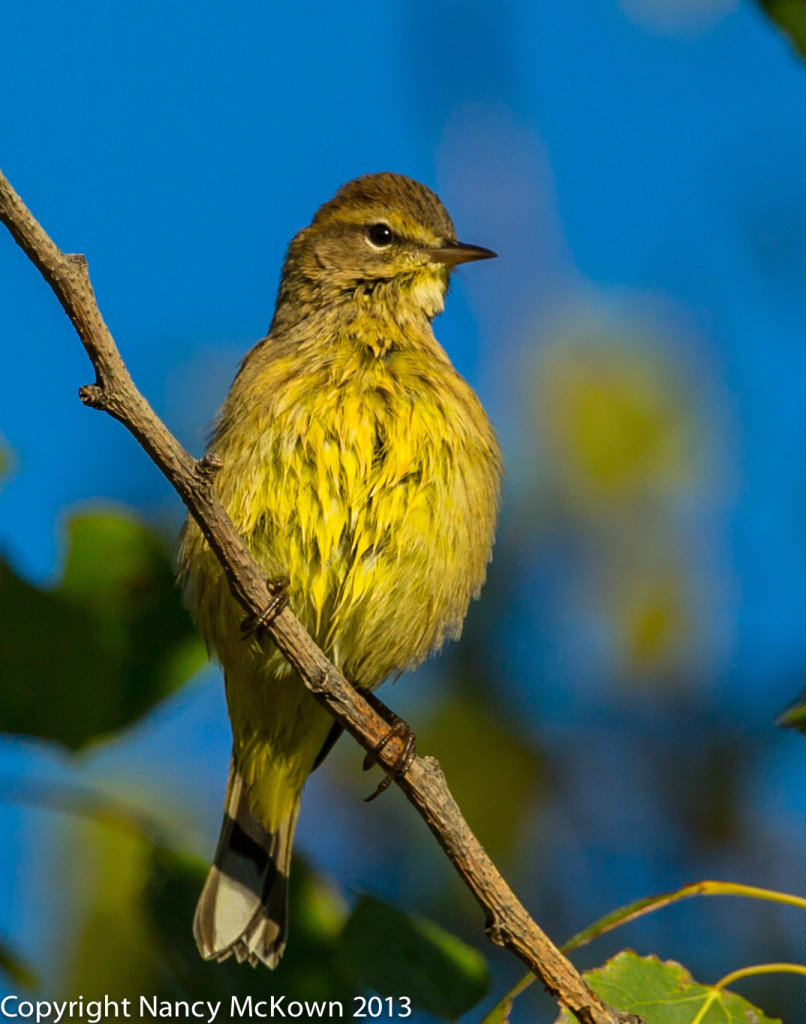
ISO 320; f7.1; 1/1000 Second
Two Subspecies of Palm Warblers
Bird ID becomes even more complicated when you come across a bird you thought you could identify, but appears somehow different. Last September, 2013, I photographed the eastern yellow subspecies palm warbler in the Allegan State Game Area. (See above photo.) According to experts at WhatBird, this subspecies is not commonly found in SW Michigan. Both the eastern and the western subspecies sport (and pump) their bright yellow under tail feathers. The main difference between the two subspecies is that the breast plumage of the eastern yellow subspecies is more distinctly yellow. The western palm warbler is browner and has more pronounced streaking on the breast. (See photo below.)
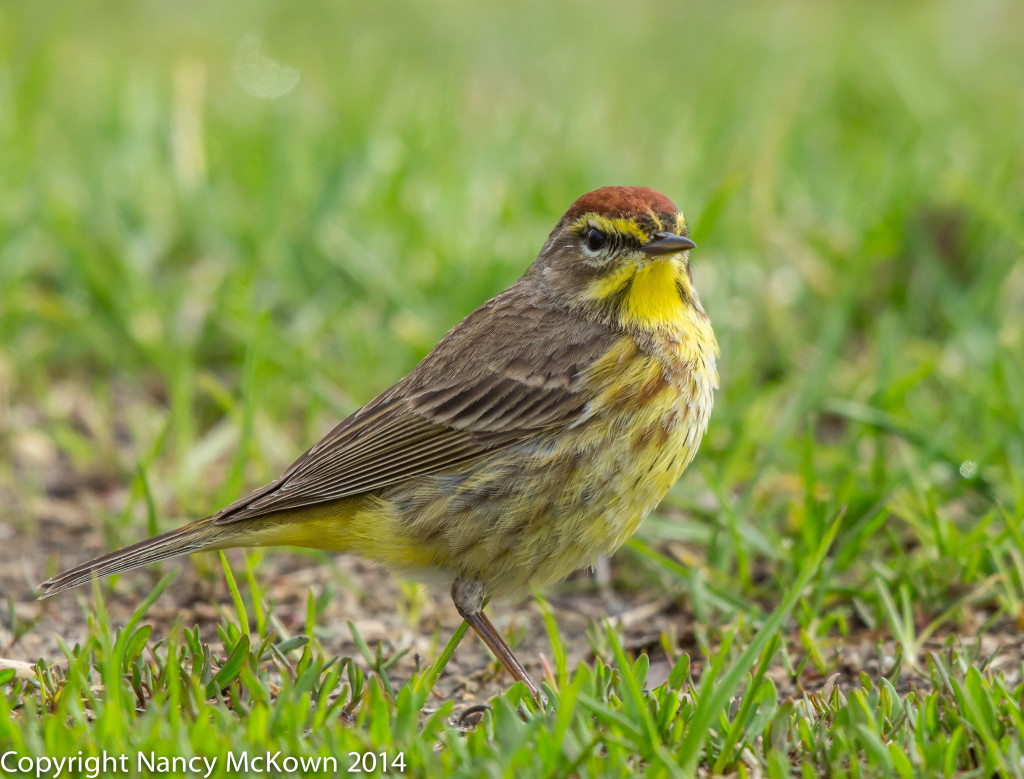
ISO 1600; f/9.0; 1/2500 Second
Subspecies Abound
A species of bird, like the palm warbler, can be divided into one or more subspecies if a group is distinct enough (to formally give them a name), but not so different as to be categorized as a different species of bird. Migration habits and geographic location are factors that impact the creation of subspecies. Size and coloration are the major characteristics that set subspecies apart. Over time, a subspecies may evolve enough to be classified as a new, distinct and genetically recognizable species of bird.
If you want to understand more about how subspecies develop, see this link.
E-Bird has tracked the fall and spring migration habits of both subspecies of the Palm Warbler, showing distinct timing and geographic movement patterns of the western palm warblers and the eastern yellow palm warblers. See this link to learn more.
